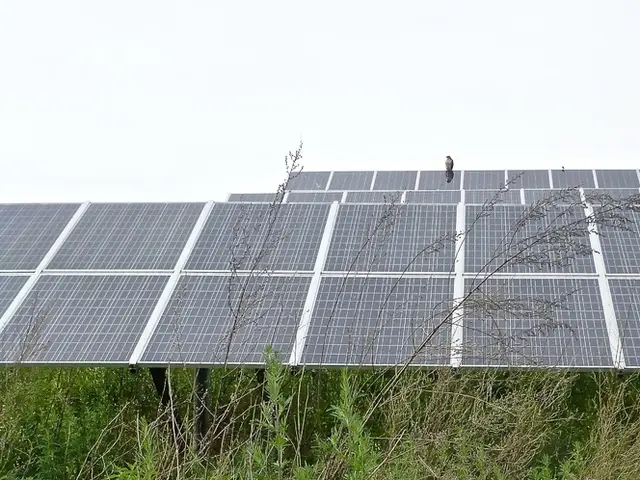Europe Needs Enhanced Geothermal Energy to Maintain Warmth and Achieve Climate Goals
In the picturesque town of Holzkirchen, Bavaria, a remarkable feat of renewable energy is making waves. Known as the "Geothermie-Holzkirchen" project, this geothermal power plant has become a model for climate protection in the heat sector, according to German geo-energy expert, Thomas Reinsch.
Despite facing numerous obstacles during its construction, including broken drill heads, a gas bubble, and delays in inserting deep well pumps, the plant persevered. Its well reaches an impressive 5 kilometers into the ground, making it the deepest in all of Europe.
The heart of the plant consists of a well with built-in underground pumps that force 311 degree (F) water to the surface. This water is used to generate heat for thousands of households in the region, and the plant's success hinges on the design of pricing systems that make it profitable to generate heat from renewables, not just electricity.
The plant, initially a community energy project, began operations in 2002 with a €40 million price tag. It was financed by the town of 17,000 residents, not by a utility, private developer, or investment bank. This grassroots approach has been key to its acceptance and success in the community.
The city of Munich, with some geothermal plants situated on its outskirts and others built directly in the downtown area, aims to make its entire heating system carbon-neutral by 2040. Europe's energy planners recognise that the contributions of wind and solar power have been primarily in electricity production, and not heating and cooling, which together account for almost half of the EU's energy demand.
Geothermal power plants, such as the one in Holzkirchen, are being considered as a potential solution for the energy transition in the heating sector. However, the International Energy Agency (IEA) states that geothermal electricity production needs to double to meet international goals, but it remains uncertain if geothermal's moment has truly arrived.
One concern is the high cost and capital-intensive nature of geothermal energy, as well as the danger of triggering earthquakes when utilizing deep hydraulic fracking. These factors tend to scare off the more cautious.
Thomas Reinsch, a geo-energy expert at the Helmholtz Center Potsdam, emphasises the need for policymakers to support the geothermal heat branch similarly to how they supported wind and solar power. He believes that at least in the short term, there's no alternative to geothermal to replace fossil fuels and nuclear power in decarbonising the heating sector.
The Holzkirchen geothermal power plant is an unobtrusive facility that emits neither noise nor air pollution. Its operations should generate over €8 million annually for the town, making it a significant contributor to the local economy. The plant's deputy mayor, Robert Weichmann, a professional forest ranger, backed the high-risk, capital-intensive project from its inception.
Paris, which also has auspicious geology, provides thousands of households with geothermal heat and is currently expanding its geothermal energy production. As the world continues to grapple with climate change, projects like the Holzkirchen geothermal power plant offer a glimmer of hope for a sustainable, renewable future.
Read also:
- Industrial robots in China are being installed at a faster rate than in both the United States and the European Union, as the global market for these robots faces a downturn.
- Galvanize Unveils $1.3 Billion Plan to Fund the Energy Sector's Evolution Pathway
- EAFO Research Uncovers Crucial Elements in Electric Vehicle Adoption within the EU
- Excess Solar Energy in the Grid: Challenges for Photovoltaic System Owners








